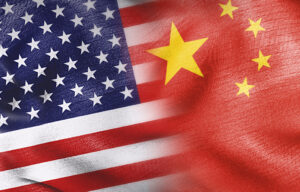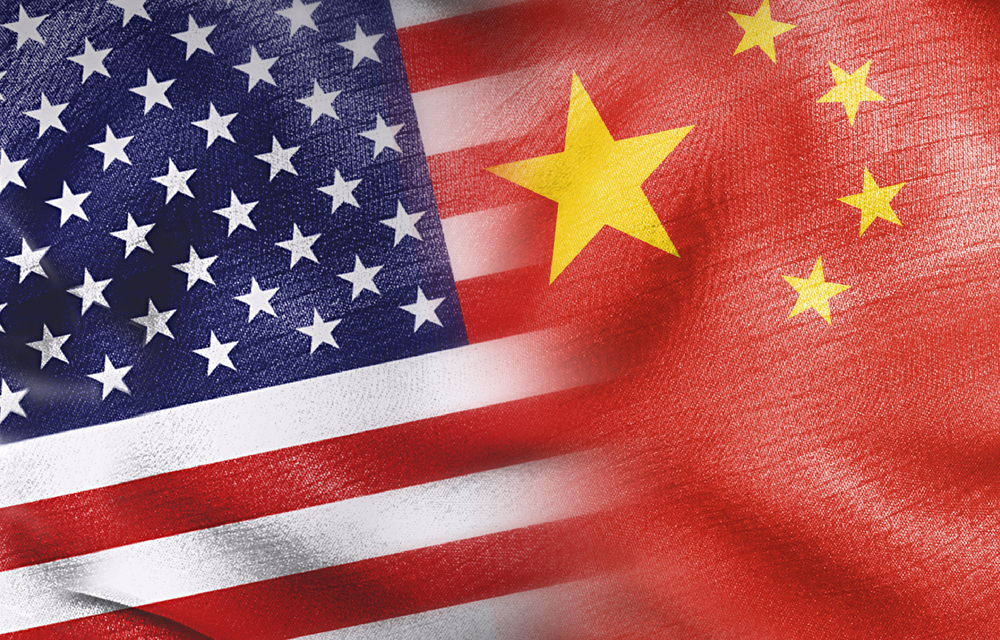Bloomberg’s Catherine Lucey reported that “US President Donald Trump said he might stop trade in cooking oil with China, injecting fresh tensions into the relationship between the world’s two largest economies.”
“Trump on Tuesday cast the potential move as retaliation against Beijing for its refusal to buy American soybeans, which he said ‘is an Economically Hostile Act’ that is purposefully ‘causing difficulty for our Soybean Farmers,’” Lucey reported. “China remains well supplied with the oilseed, largely thanks to South American purchases.”
“‘We are considering terminating business with China having to do with Cooking Oil, and other elements of Trade, as retribution. As an example, we can easily produce Cooking Oil ourselves, we don’t need to purchase it from China,’ Trump posted on social media,” according to Lucey’s reporting. “The benchmark S&P 500 turned negative as Trump’s comments re-escalated the conflict with China. Just hours earlier, both Trump and US Trade Representative Jamieson Greer expressed confidence that friction would ease through ongoing trade talks.”

Reuters’ Kanishka Singh, Ella Cao and Joe Cash reported that “the U.S. was China’s top market for used cooking oil (UCO), importing a record 1.27 million metric tons worth $1.1 billion in 2024. But after China cut tax rebates late last year and the U.S. imposed tariffs on Chinese goods this year, imports plunged 65% in January-August to 290,690 tons, or $286.7 million.”
“As such, Trump’s comments would have ‘minimal’ impact on the commodity, two UCO traders in China said on condition of anonymity as they were not authorized to speak to media,” Singh, Cao and Cash reported. “‘Domestic producers are now mainly taking orders for Europe and are no longer considering the U.S. market,’ said one of the traders.”
“Analysts said Trump’s announcement was not escalatory following a week of fresh tariff threats and export controls,” Singh, Cao and Cash reported. “Used cooking oil trade is small compared with that of soybeans. Last year, China imported 22.13 million tons of U.S. soybeans worth $12 billion. But restricting UCO imports allows Trump to show the U.S. agriculture industry he is still being tough on China, some analysts said.”
Ag Groups Say More Support Still Needed for Soybean Producers
Agri-Pulse’s Oliver Ward reported that “if the president is aiming to support soybean growers, Paul Winters, director of public affairs at Clean Fuels Alliance America, tells Agri-Pulse, the administration should swiftly finalize ‘the robust RFS volumes that EPA proposed and finalizing rules for the 45Z credit.’”
“Devin Mogler, president and CEO of the National Oilseed Processors Association, agrees that domestic biofuel policies can absorb some of the surplus production created by China’s retreat from the market,” Ward reported. “‘We recognize the pain that soybean farmers are dealing with right now, and we think that strong domestic biofuel policies are a great way to address that concern in the near- to medium-term,’ Mogler told Agri-Pulse.”
“The American Soybean Association also welcomed the president’s interest in promoting domestic feedstocks like soybean oil in clean fuel production, but stressed that U.S. growers want to see the Chinese market return,” Ward reported. “‘As trade negotiations continue deep into harvest season, we continue to hope that discussions can get back on track to restore our market access to the China market,’ a statement from the group reads. But adds that ‘ASA appreciates President Trump standing by soybean farmers and acknowledging the difficulty facing farmers.’”
Trade Rep Predicts Easing of China Tensions
Bloomberg’s Lucey reported in a different article that “US Trade Representative Jamieson Greer predicted that heightened tensions with China over export controls would ease, following talks between representatives from the world’s two largest economies.”
“‘We’ve been pretty successful in finding a path forward with them in the past so we think we’ll be able to work through it,’ Greer said Tuesday in an interview with CNBC,” Lucey reported. “Senior-level officials from the US and Chinese governments held discussions about recent tensions on Monday, Greer said, without naming who participated.”
“China and the US have shown few signs of backing down from the tit-for-tat retaliation that has rattled the global economy ahead of an expected meeting between President Donald Trump and Chinese President Xi Jinping later this month,” Lucey reported. “(But) Greer said the US has seen signs that China has ‘realized that they’ve overstepped,’ citing what he said was less bellicose language in recent Chinese government statements. Still, he declined to estimate when tensions would be resolved.”
